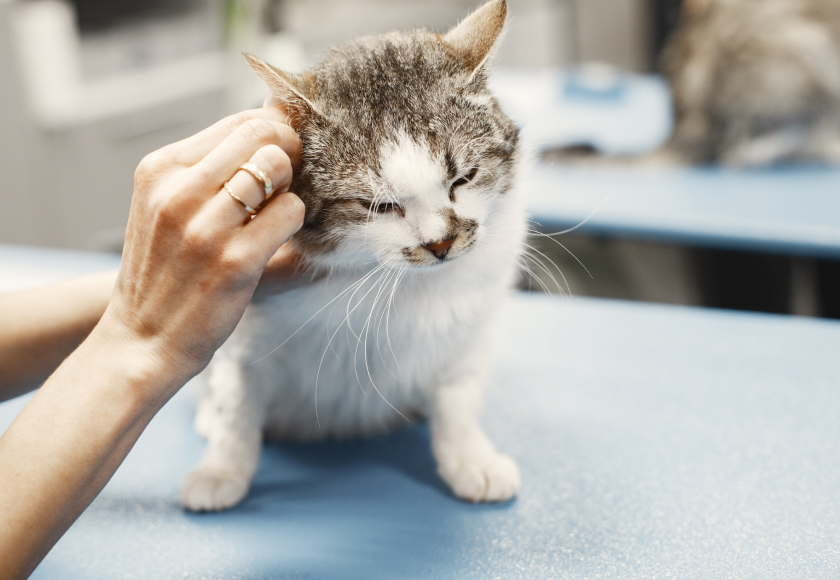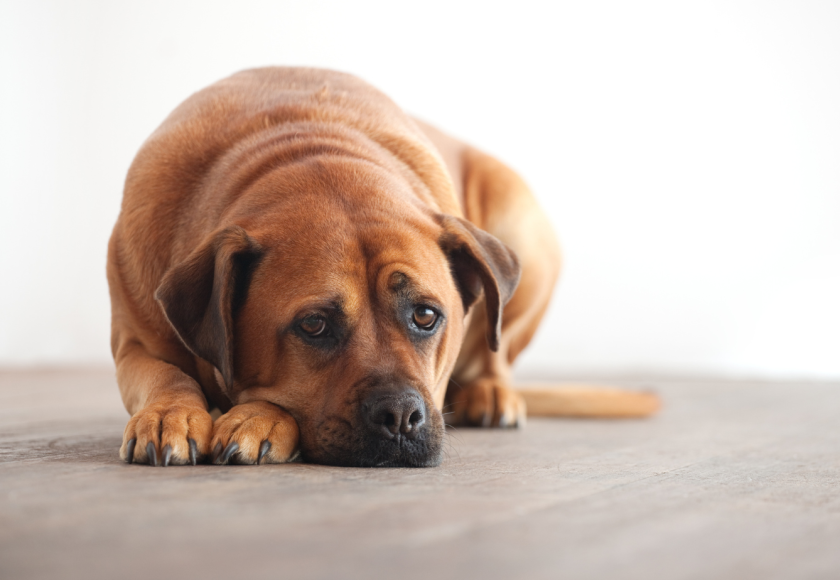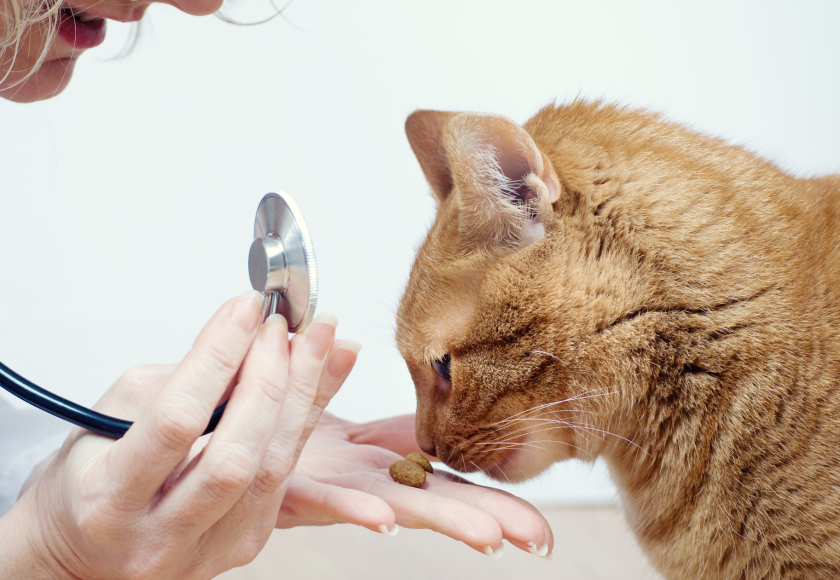Many cat owners worry when their pet loses its appetite. How long a cat can go without eating is one of the most frequently asked questions to veterinarians. This concern is entirely justified, as a cat’s refusal to eat can signal serious health problems.
How long a cat can go without eating depends on many factors, but generally, a healthy cat can go without food for up to 48 hours. However, if you notice that your pet has been refusing to eat for longer than that, it is worth getting concerned.
If your cat has not eaten for more than two days, you should consult a specialist as soon as possible, and if your sick pet refuses food, you should not wait longer than 12-24 hours.
Table of contents
How long can a cat go without eating without risking its health?
It can be very difficult to say how long a cat can go without eating, as it depends more on its health, age, and other circumstances:
- Healthy adult cats: Can go without food for up to 24-48 hours without serious health consequences.
- Kittens: Should not go without food for more than 12 hours, as their bodies are not yet fully developed.
- Senior cats: Should not go without food for more than 24 hours, as their bodies are less adaptable.
- Sick cats: Should not go without food for more than 12 hours, especially if they have diabetes, kidney or liver disease.
It is important to understand that how long a cat can safely go without eating is only a rough estimate. Every pet is unique, so it is important to observe its general behavior and other signs.
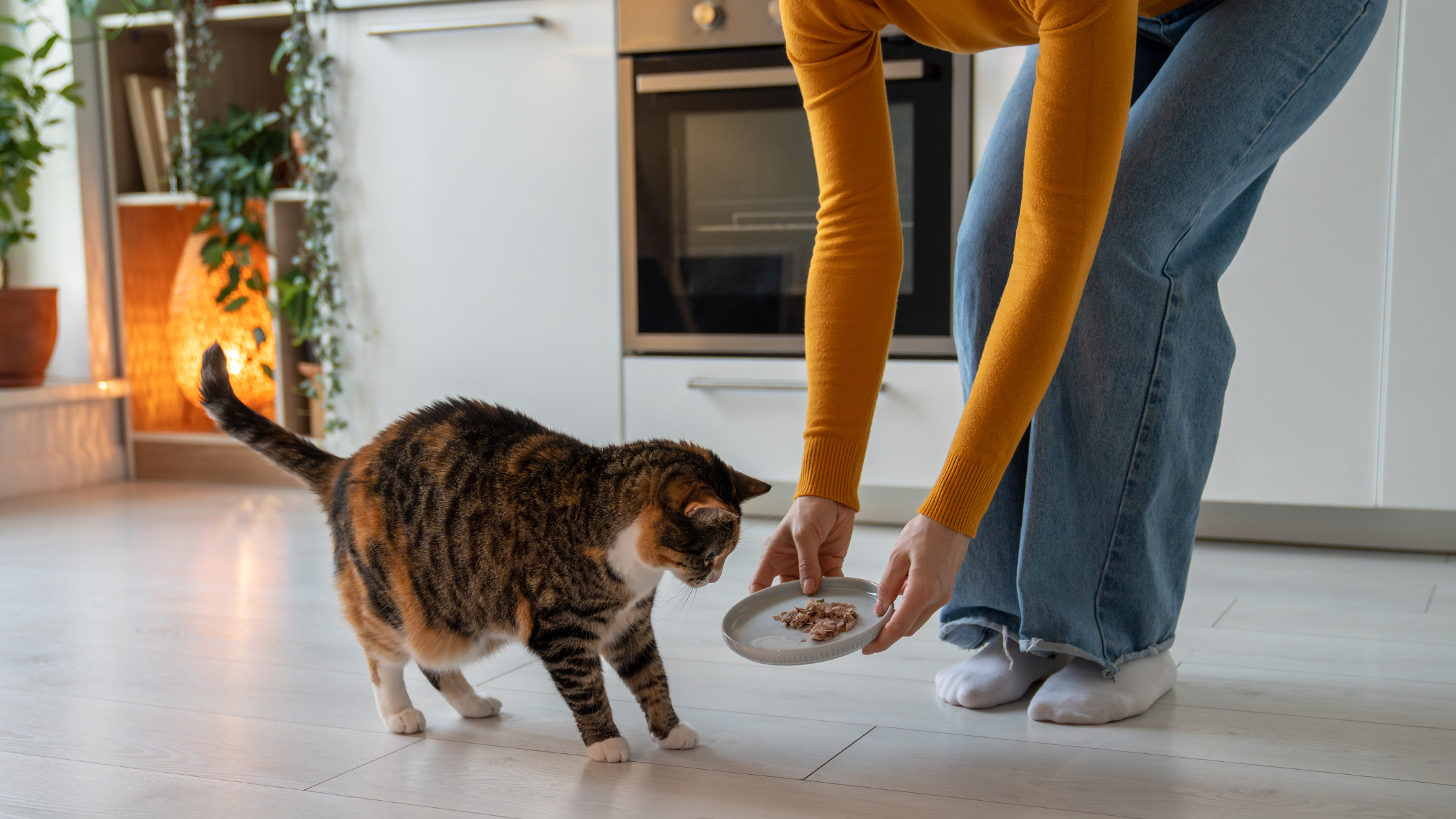
The cat’s body’s response to starvation
Cats’ bodies react very sensitively to prolonged fasting. Unlike dogs, which can fast for several days without significant harm to their health, prolonged food deprivation in cats can cause serious liver problems, known as hepatic lipidosis.
This is a condition in which the body begins to metabolize fat, but the cat’s liver is not equipped to do so efficiently. For this reason, if your cat has not eaten or drunk anything for more than a day, you should consult a veterinarian immediately.
When should you be concerned if your cat isn’t eating?
If you notice that your cat is not eating, you should first carefully observe its behavior. You should be concerned if you notice the following signs:
- The cat has not eaten for more than 24 hours
- The pet seems lethargic, sleepy
- The pet’s behavior has changed – it hides, avoids contact
- The cat is vomiting or has diarrhea
- The cat’s body temperature has increased
- Difficulty breathing
- Yellowish skin or mucous membranes (may indicate liver problems)
The situation becomes particularly dangerous when a cat refuses to eat or drink. Prolonged fluid deficiency can lead to dehydration, which severely affects the animal’s organs and overall well-being. If your pet refuses both food and water for more than 24 hours, it is essential to seek professional help without delay.
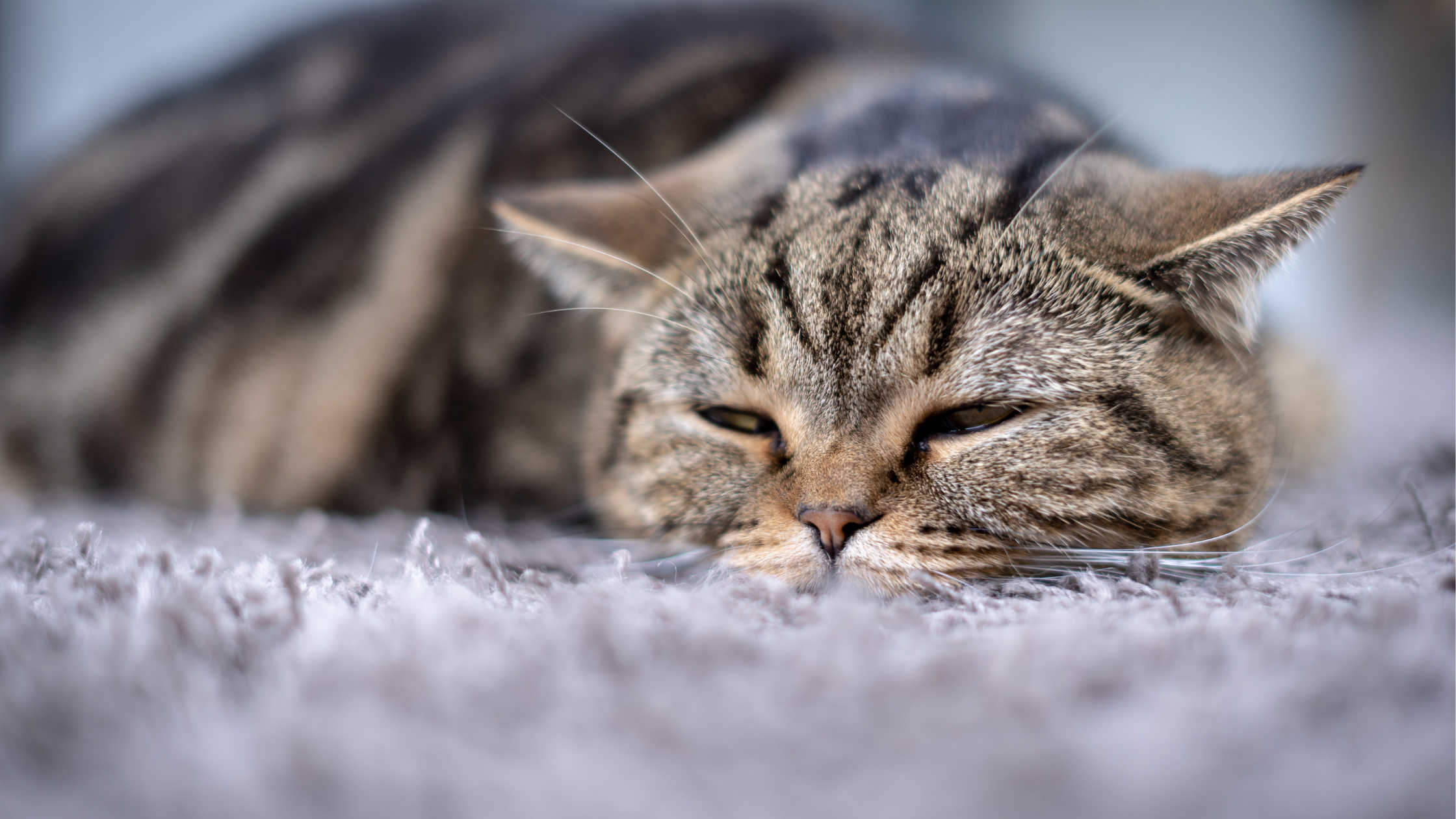
Reasons why a cat refuses food
There are many reasons why a cat may stop eating:
- Cat tooth tartar and mouth pain – if the animal feels discomfort when chewing, it may avoid food;
- Digestive disorders – nausea, diarrhea, or constipation can cause loss of appetite. If your cat is vomiting and not eating or drinking, seek immediate veterinary attention.
- Stress – moving house, a new animal in the home, or a change in environment can cause your cat to refuse to eat.
- Internal organ diseases – disorders of the kidneys, liver, pancreas, or other organs can cause a lack of appetite.
- Poisoning – if your cat has eaten something poisonous, it may stop eating and drinking.
- Viral or bacterial infections – various diseases can affect your cat’s appetite.
If your cat is not eating or drinking for any of these reasons, it is important to take action as soon as possible.
How to help your pet if it is not eating?
If you notice that your cat is not eating or drinking, try to find out the reason by following these first aid steps:
- Check the condition of your cat’s teeth and mouth – perhaps your cat is unable to eat due to pain.
- Offer different food – perhaps your cat is no longer interested in its usual food.
- Ensure a calm environment – if your cat is stressed, it may avoid eating.
- Monitor its water intake – if you notice that your cat is drinking less than usual, this may be a sign that something is wrong.
- Use natural appetite stimulants – warm food or liquid canned food may help.
If these measures do not help and your pet still refuses to eat, do not wait – contact your veterinarian.
Preventive measures
To avoid such situations in the future, it is important to follow these preventive measures:
- Visit your veterinarian regularly – preventive checkups can help prevent diseases.
- Ensure a balanced diet – choose high-quality food that is appropriate for your cat’s age and health condition.
- Reduce stress – provide your cat with a quiet corner where it feels safe.
- Observe your cat’s behavior – if you notice any unusual changes, react as quickly as possible.
When is it necessary to visit a veterinary clinic?
If your pet refuses food or water for more than 24 hours, do not wait – contact your veterinarian. The Begemotas veterinary clinic in Vilnius offers professional help and modern diagnostics to determine the true cause of the illness.
Prolonged fasting can have serious consequences for your pet’s health, so a quick response can save your pet’s life.
Examinations performed by a veterinarian
At veterinary clinics, veterinarians can perform various tests to determine the cause of the problem, such as:
- Blood tests – help to identify infections, organ diseases, or other pathologies.
- Ultrasound and X-ray examinations – allow the condition of internal organs to be assessed.
- Stool and urine tests – help to diagnose digestive disorders or kidney problems.
- Endoscopic tests – help to examine and diagnose diseases of the esophagus, stomach, and intestines from the inside and assess their condition.
If your cat is not eating or drinking, or your male cat has not eaten for more than a day, do not wait for the problem to worsen. Contact the Begemotas veterinary clinic in Vilnius and register your pet for a visit to the veterinarian online or by phone.
The sooner the problem is solved, the better for your pet!



